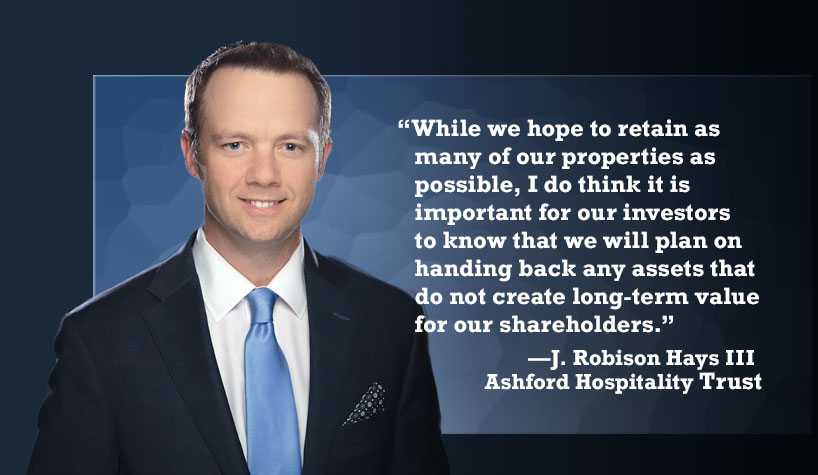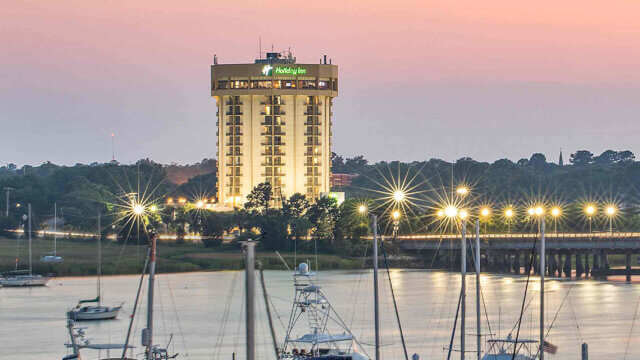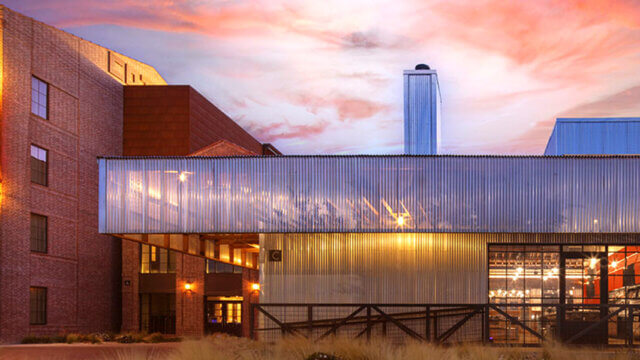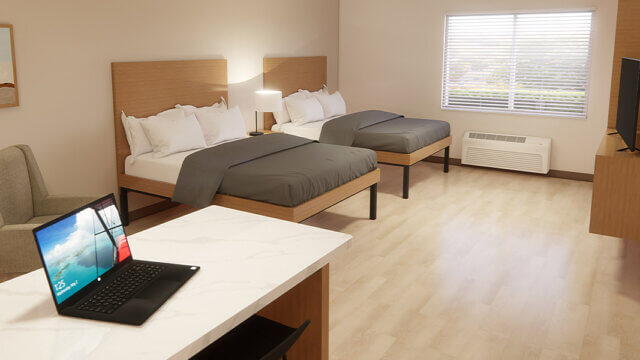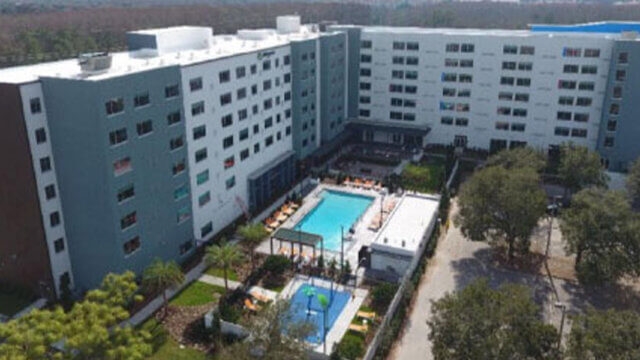DALLAS—In its second quarter earnings call, Ashford Hospitality Trust Inc., said that givebacks to lenders are possible given the losses caused by the COVID-19 pandemic.
In response to the impact of COVID-19 on the hospitality industry, the company is deploying numerous strategies and protocols to protect the health and safety of its hotel employees, guests, partners and communities where it operates. Additionally, the company has taken steps to ensure that it has additional financial flexibility going forward to navigate this crisis.
Beginning on April 1, 2020, the company did not make principal or interest payments under nearly all of its loan agreements, which constituted an “Event of Default” as such term is defined under the applicable loan agreement. The company is actively working with its lenders to arrange mutually agreeable forbearance agreements to reduce its near-term cash burn rate and improve liquidity. To date, the company has signed forbearance or other agreements on six loans secured by 24 hotels. The forbearance agreements allow the company to defer interest on the loans for an initial period of three months and up to six months subject to certain conditions. The forbearance and other agreements also generally allow the company to utilize lender- and manager-held reserve accounts, which are included in restricted cash on the company’s balance sheet, in order to fund operating shortfalls at the hotels.
“It is likely, however, that we will be unable to agree on forbearance terms with all of our loan pools and investors should anticipate that we may be handing back some assets to lenders in the months to come,” said J. Robison Hays, president/CEO. “There are several reasons why we may decide to give back assets to lenders. One, there is negative equity in the loan pool that is unlikely to reach positive equity in the medium to long term; Two, there are significant cash requirements on the property such as operating shortfalls, ongoing debt service or CapEx that we do not believe are economical; or three, terms that the lenders or special services are proposing are onerous and make keeping the property unattractive.”
He continued, “While we hope to retain as many of our properties as possible, I do think it is important for our investors to know that we will plan on handing back any assets that do not create long-term value for our shareholders.”
The company ended the quarter with cash and cash equivalents of $165 million and restricted cash of $95 million. The vast majority of the restricted cash is comprised of lender- and manager-held reserves. The company is currently working with its property managers and lenders in order to utilize lender- and manager-held reserves to fund operating shortfalls. At the end of the quarter, there was also $13 million in due from third-party hotel managers, which is the company’s cash held by one of its property managers and is also available to fund hotel operating costs.
Currently, operations at four of the company’s properties remain temporarily suspended. The company’s remaining 112 properties are open and operating.
The negative impact of the COVID-19 crisis on economic activity and the hospitality industry continues to evolve. The crisis is expected to continue to impact the company’s financial results during the third quarter of 2020 and beyond. Given the severity of the COVID-19 crisis and the recent appointment of Hays, the company anticipates doing a review of its long-term strategy after the crisis has passed, which may include material changes to its leverage, capital structure, liquidity, and investment focus.
Financial and Operating Highlights
- Net loss attributable to common stockholders was $215.3 million or $20.85 per diluted share for the quarter.
- Comparable RevPAR for all hotels decreased 88.3% to $16.60 during the quarter.
- Adjusted EBITDAre was negative $56.5 million for the quarter.
- Adjusted funds from operations (AFFO) was negative $12.32 per diluted share for the quarter.
- CapEx invested during the quarter was $9.4 million.
Capital Structure
At June 30, 2020, the company had total mortgage loans of $4.1 billion with a blended average interest rate of 3.7%. This average interest rate does not take into account any default rates.
Subsequent to quarter end, the company’s board of directors unanimously approved a reverse split of the company’s common stock at a ratio of 1-for-10. The reverse stock split became effective on July 15, 2020, at which time each share of the company’s issued and outstanding common stock and equivalents was converted into one-tenth of a share of the company’s common stock.
Subsequent to quarter end, the company is commencing an offer to exchange shares of common stock for outstanding depositary shares of each series of its preferred stock.
In light of the economic uncertainty arising from the COVID-19 pandemic and to protect liquidity, the company and its board of directors suspended its previously announced 2020 common stock dividend policy. Accordingly, the company did not pay a dividend on its common stock and common units for the second quarter ending June 30, 2020. The board of directors will continue to monitor the situation and assess future quarterly common dividend declarations.
Portfolio RevPAR
As of June 30, 2020, the portfolio consisted of 116 hotels. Comparable RevPAR decreased 88.3% to $16.60 for all hotels on a 36.4% decrease in ADR and an 81.6% decrease in occupancy.
